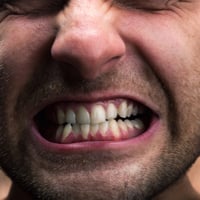Dentists report increase in tooth grinding during the pandemic

Dentists have reported an increase in the number of patients displaying symptoms of tooth grinding and clenching during the pandemic.
Tooth grinding, known as bruxism, can be associated with dental issues and problems with the bite, but it is often linked to stress and anxiety.
Over the last two years, dentists across the country have seen more patients presenting with signs of tooth clenching, such as damage to the teeth, headaches, jaw pain and stiffness and facial pain.
Dr Azad Eyrumlu, from the Banning Dental Group, said that bruxism is fairly common, but there has been a noticeable increase in the number of patients reporting symptoms of tooth grinding and clenching during the pandemic.
Dr Eyrumlu estimated a rise of around 20% in the number of patients exhibiting signs of bruxism in the last 18 months. The pandemic has been stressful for millions of people and heightened anxiety and rising stress levels have taken their toll on dental health, as well as physical and mental health.
Most people who grind their teeth don’t realise that they do it, as it is usually a subconscious action, which occurs during sleep. In many cases, people are alerted to their behaviour by a partner, or they learn about symptoms of bruxism after attending a dental appointment.
Bruxism can make it difficult for other people to sleep, but crucially, it can also cause major damage to the teeth and contribute to pain in the jaw, headaches and shoulder, neck and back pain.
Dentists recommend using a night guard to prevent contact between the teeth during the night. The devices, which are moulded for the individual, sit over the teeth during sleep in a similar way to a mouth guard worn for playing sport.
For more news click here.
Join this Discussion









